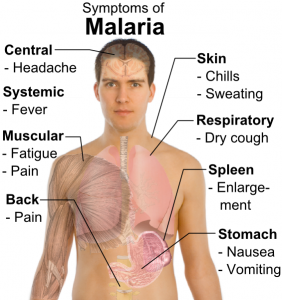 Malaria is on the rise in the UK. The data collected by the Health Protection Agency (HPA) paints an ominous picture of a 30% increase in reports of the disease in the country and travellers are advised to take anti-malaria tablets when travelling so as not to become one of the statistics. The data is based on 1370 reported malaria cases in 2008, 1495 in 2009 and 1761 in 2010.
Malaria is on the rise in the UK. The data collected by the Health Protection Agency (HPA) paints an ominous picture of a 30% increase in reports of the disease in the country and travellers are advised to take anti-malaria tablets when travelling so as not to become one of the statistics. The data is based on 1370 reported malaria cases in 2008, 1495 in 2009 and 1761 in 2010.
The majority of these victims had recently travelled to India or West Africa, places well known to host the disease. In fact, 40% of the sufferers had travelled to either Nigeria or Ghana and 11% to India. Malaria, transmitted by the bite of a mosquito has been identified as prevalent in these countries and making the necessary precautions should be the responsibility of any traveller.
Malaria is a huge killer with up to 1 million deaths annually. The disease is one that can remain inactive in the system for up to a year but most symptoms show themselves after 8 days of being bitten.
With more than five different types of anti-malaria medication available, there is no excuse for any Briton to travel overseas without adequate protection. Professor Peter Chiodini of the HPA recommends that all people considering travelling abroad should see the advice of their medical professional. He also adds that there is no immunity from malaria and every person travelling should do what they can to prevent the disease.
The HPA’s Dr Jane Jones concurs with Chiodini and says that the disease could be deadly but is almost 100% preventable. Additionally, people can get malaria multiple times so, even if you have had it before; it is a good idea to take the medication.









